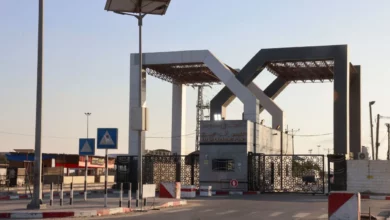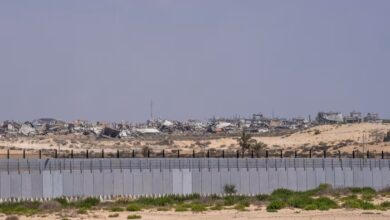Kuwait–Kuwaiti political circles have been debating the likelihood of imminent US military strikes against Iran as the government announced a deal to purchase Patriot missiles from the US.
On 11 August, the Obama administration told the US Congress it planned to sell Kuwait the latest production version of Raytheon Co's Patriot interceptor missile to bolster an integrated network aimed at thwarting a perceived missile threat.
Kuwait is seeking as many as 209 Patriot Guidance Enhanced Missile-T (GEM-T) interceptors valued at up to US$900 million, the Pentagon's Defense Security Cooperation Agency said in a notice to lawmakers. Congress has 30 days to review the proposed sale.
Kuwaiti parliamentarians and military experts have called on the government to take all measures necessary to ensure the protection of the country in such an event.
Prime Minister Sheikh Nasser al-Mohamed, was recently asked by MP Mubarak al-Khirinj about the financial and military measures that have been taken by the government in case such a strike does take place.
Abdulkarim al-Gharabally, one of the most prominent military analysts in Kuwait, predicted that a military strike against Iran was imminent and that indicators show that it will happen within the next two months if Iran and the international community do not come to an agreement. Al-Gharabally also called on the Kuwaiti government to set up an emergency plan to ensure that the country is protected.
“Although there is no doubt that Iran has the right to possess nuclear technology, it must be aware that power reigns in the international community. Iran itself is using this logic as it continues to occupy the Arab islands in the Arabian Gulf,” al-Gharabally told Al-Masry Al-Youm.
Al-Gharabally, a former advisor to the Minister of Defense, said that this military strike will be unique, “through its use of smart weapons that offer long-range precision, including semi-nuclear munitions and bombs that combine lethality with great precision.”
The former colonel added that there will be no employment of the infantry or heavy use of the air force in this anticipated war and that planes that are undetectable by radar will be used instead.
“There are indicators that make us predict that war will occur within the next two months, primarily because US forces are preparing to leave Iraq,” he said.
He went on to say that, “these forces have not withdrawn entirely but will be removed from residential areas and will no longer be at the forefront of the fighting.”
Al-Gharabally admitted that military bases in Kuwait and Iraq are within range of Iranian missiles, which he believes are supplied by North Korea, but he affirms that this will not influence the execution of the attack. He says that necessary measures have been taken to intercept missiles fired indiscriminately by Iran which, in his opinion, lacks the technologies necessary to make high-precision weapons.
According to al-Gharabally, unlike Israel, the Iranian satellite program is not very advanced yet and for this reason, Israel is pushing for this military strike. “Israel has the most to lose if Iran is not dealt with forcefully,” he said.
“One of the biggest indicators of the imminence of this military strike is Israel’s long-range missile testing.”
Al-Gharabally also criticized the lack of attention given to the issue of Iranian sleeper cells, despite Iranian statements that they have over 50 thousand suicide bombers deployed in such cells throughout the Gulf region.
The statement further says that they will carry out operations against US interests in the region such as oil fields and commercial interests. He said that Kuwaiti security agencies are very active in this regard and that just a few months ago they broke up an Iranian spy network.
In May, Kuwaiti security forces have busted a spy cell working for Iran's Revolutionary Guards, feeding information on Kuwaiti and US targets.
According to Kuwaiti media reports, authorities arrested at least seven men, some of whom served in the interior and defense ministries, while others include bidoon, or stateless Arabs, and other Arabs.
Cell members have taken pictures of Kuwaiti military and other vital targets in addition to US military sites, the media reported.
Kuwait is home to several US military bases. The major base is in Arifjan, 70km south of Kuwait City and houses about 15,000 US soldiers.
The emirate is also used as a transit point for US troops into and out of both Iraq and Afghanistan.
Iran's Revolutionary Guards are an elite military, industrial and political force created by the founder of the Islamic Revolution, Ayatollah Ruhollah Khomeini, to safeguard the revolution from both foreign and domestic threats.
They have repeatedly warned they have US bases in Iraq and Afghanistan under watch, implying they will pound these targets and could shut down the sea lanes of the oil-rich Gulf if the US launches a military attack.




